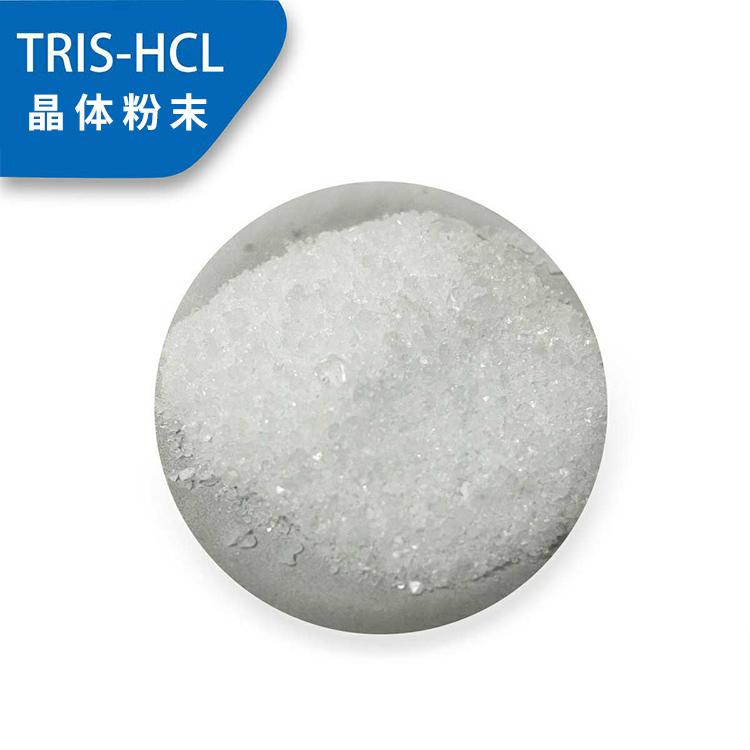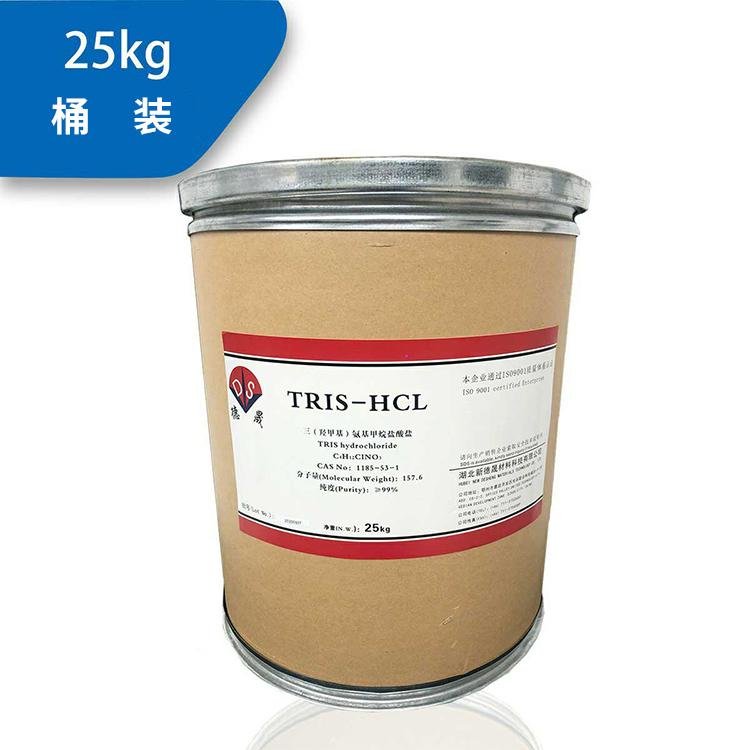TRIS-HCL
Model No.︰CP01-DS025
Brand Name︰desheng
Country of Origin︰China
Unit Price︰CNY ¥ 188 / kg
Minimum Order︰100 kg
Product Description
What is the difference between Tris-HCl powder and solution reagents?
The difference between Tris-HCl powder reagent and solution reagent is not only the difference between powder and solution, the powder reagent is dissolved in water to form a solution and the finished solution reagent is also different in use. The reason is that the molecular structure of trishydroxymethylaminomethane (HOCH2) 3CNH2 contains an amino group, which reacts 1 to 1 with hydrochloric acid to form a salt, but there may be a small amount of Tris base in the powder product that has not completely reacted with hydrochloric acid.
What is the relationship between Tris-HCl and Tris-cl?
The two are the same reagent, but they are written differently. Tris-HCl is to add an appropriate amount of hydrochloric acid to the Tris-base solution to adjust the pH value you need. The Tris series of buffers (or HEPES) can be used to treat flies with DEPC, but such amine-containing reagents will accelerate the hydrolysis of DEPC. But if you must use DEPC, increase the final concentration of DEPC to 1%, and the effect will be the same as 0.1%.
Does the pH value of Tris-HCl buffer change with temperature?
The pH of Tris-HCl buffer is greatly affected by temperature. Once the temperature changes, the pH will change significantly. The pH at 37°C was on average 0.18 lower than the pH at 23°C. The average pH is 0.32 lower than that at 12°C. Temperature changes have a great influence on the pH of the buffer, so it must be prepared at the use temperature. Tris-HCl buffer prepared at room temperature cannot be used at 0°C to 4°C.
What is the difference between Tris and Tris-HCL?
Tris is an organic compound mainly used in molecular biology to make buffers or as basic buffers. Tris-HCL is a buffer commonly used by molecular biologists to adjust the pH of a solution or to stabilize the pH. Determining whether to use Tris-HCL or Tris depends on the experiment being performed. Conjugated acidic or basic components can be used when the pH of the solution needs to be adjusted. For example, if you have a protocol that calls for tris HCl, you can use tris to adjust the pH. (Tris and Tris-HCl are the same when formulated as a buffer)
The difference and use of Tris-HCl and PBS buffer
The PKa value of PBS solution will change with the dilution of the buffer, and inhibit the activity of most enzymes, including kinases, phosphorylases, dehydrogenases, etc. It is a phosphate buffer solution with a pH of 7.4. The pH is fixed and isotonic with human blood, so it is generally used in molecular cloning and cell culture experiments.
Tris-HCl is prepared with trishydroxymethylaminomethane and hydrochloric acid, and then the pH can be adjusted. It is used in all pH ranges. We mostly use pH6.8 and pH8.8 for protein experiments, which are generally used in laboratories. This is also in protein, DNA, and RNA experiments.
Product Image


